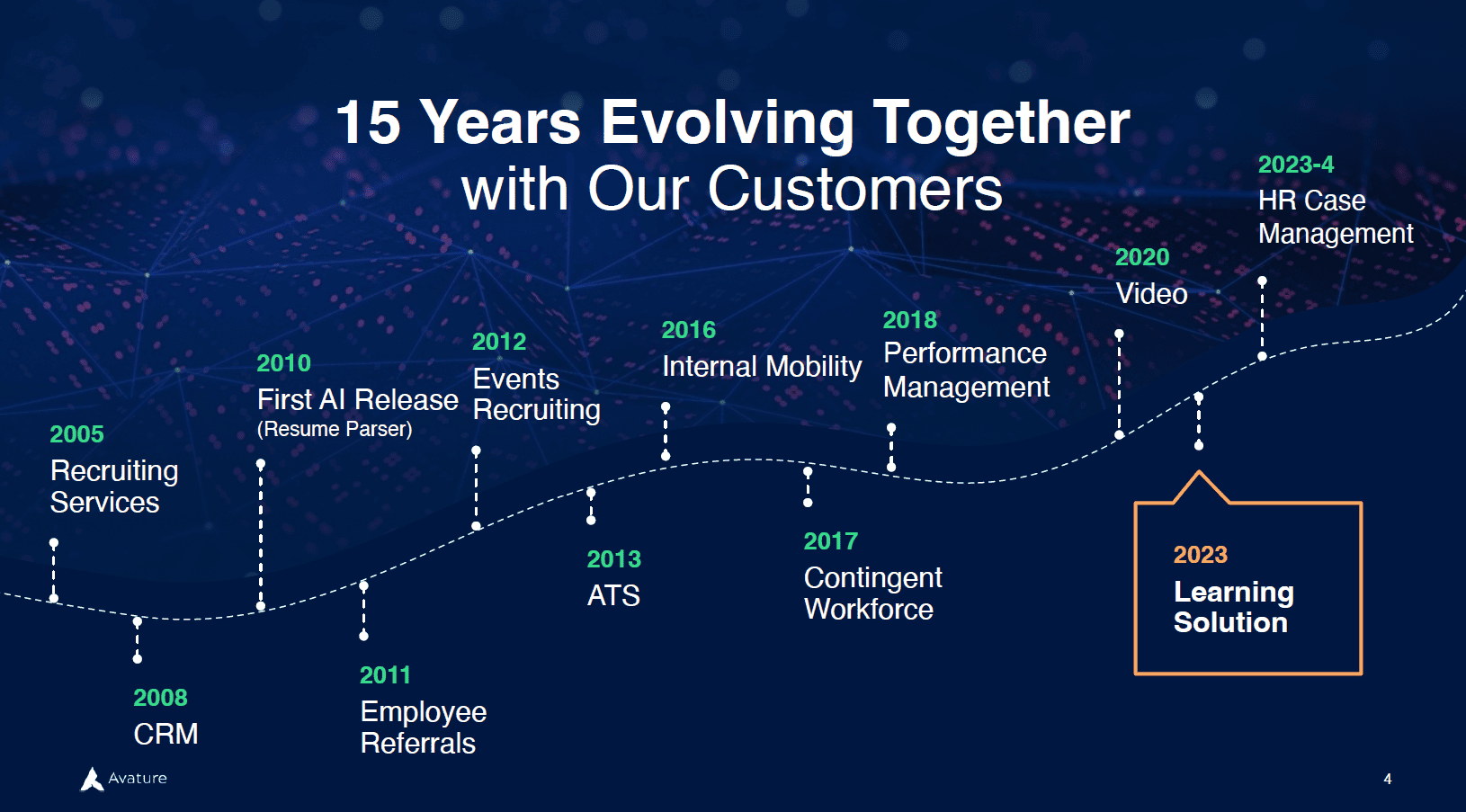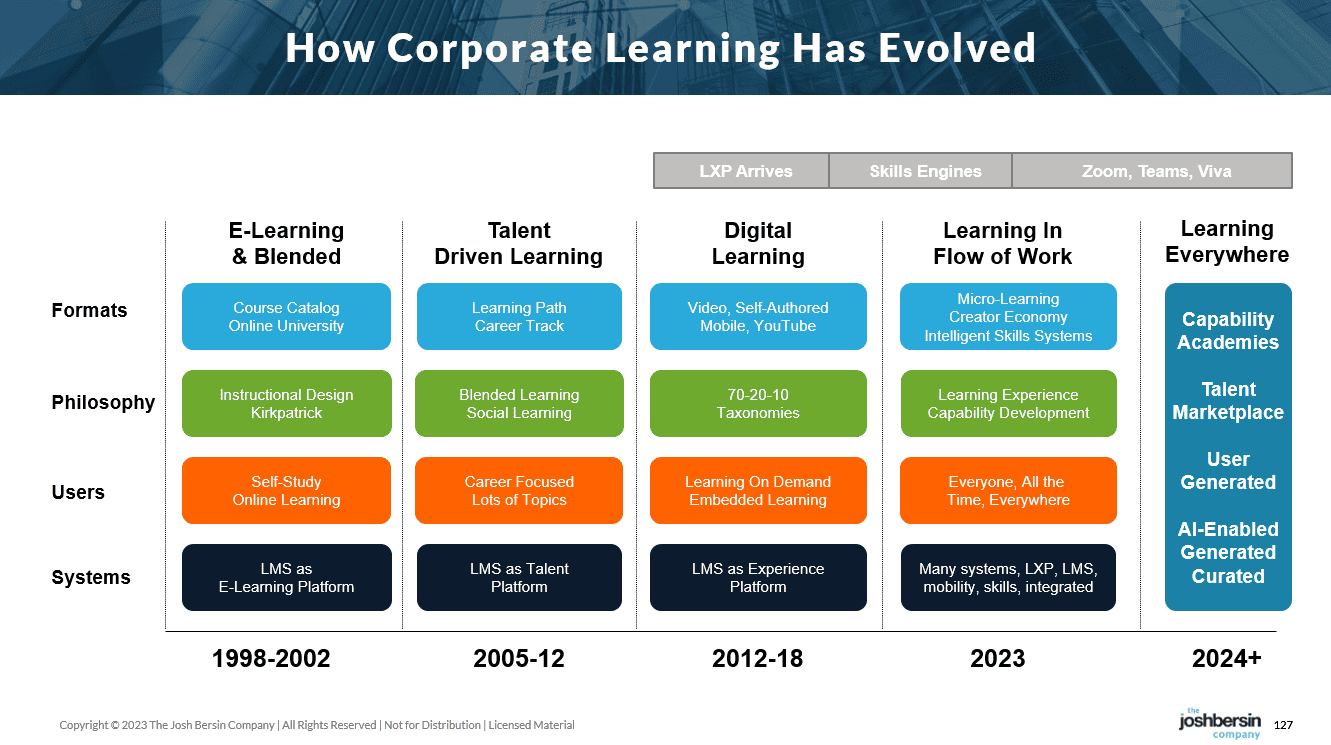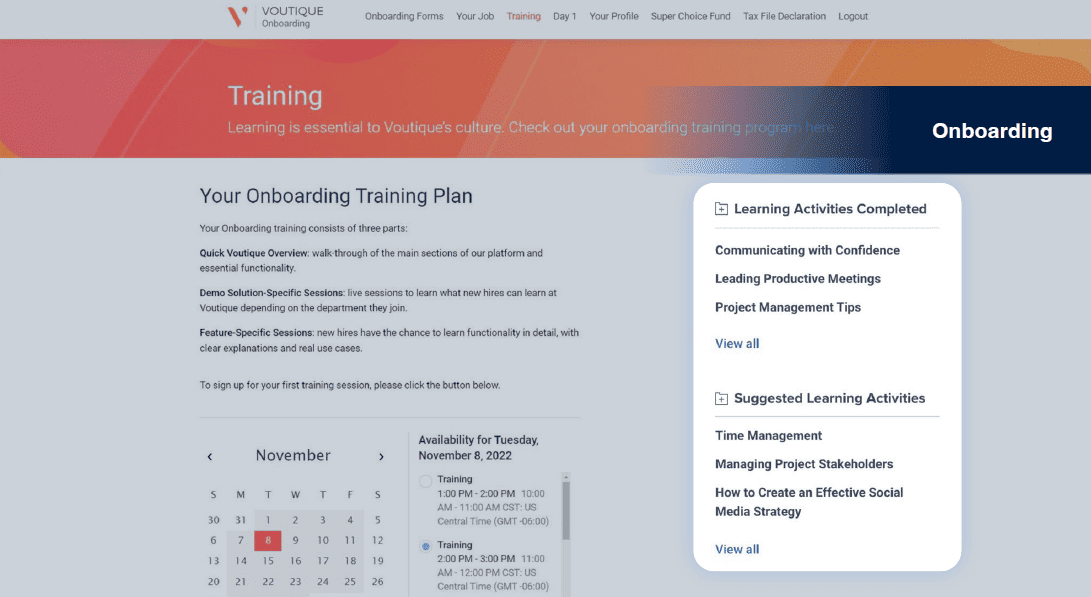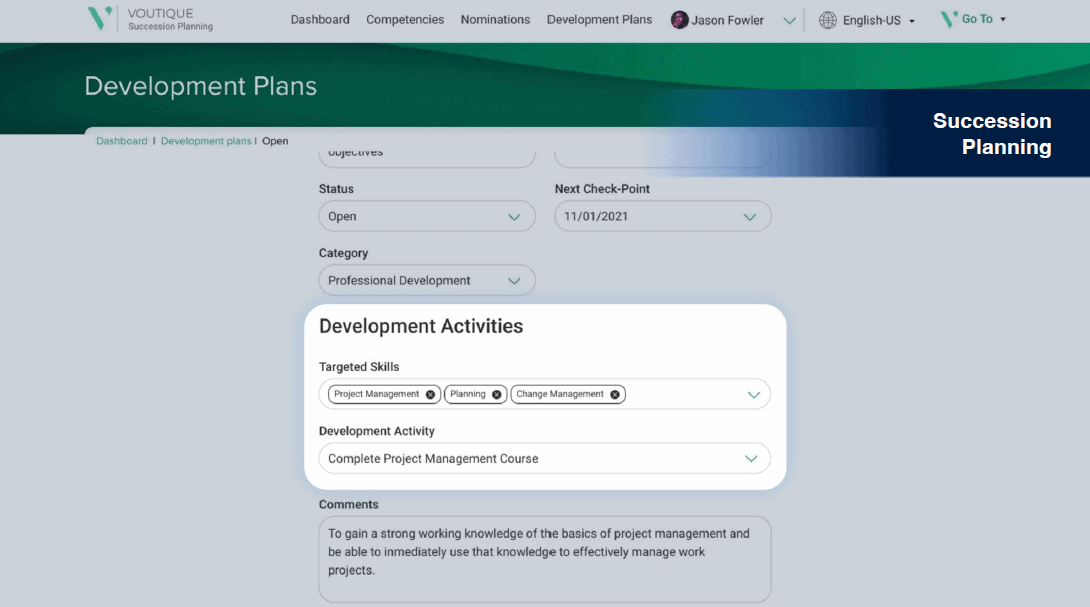Avature Enters Training Market With Focus On Informal Learning
This week Avature, a highly successful talent management platform company, formally entered the corporate learning market. And while the space is crowded, I think they have a big opportunity.
First, let me tell you about Avature. This is a privately held, fast-growing platform company that has established one of the most loyal and committed customer sets in talent acquisition. Originally designed to manage candidate relationship management (years ago), the platform has become a highly configurable workflow system that customers adore.
I’ve interviewed many Avature customers and they love the platform so much they simply want it to do everything (I like to think of it as the Swiss Army Knife of HR applications). Not only is it easy to configure workflows, approvals, and various data-driven branching applications, it has an embedded skills model and a tagging system that lets you run reports on any process in seconds.
In some ways Avature was a workflow-first platform years before ServiceNow ever considered entering the HR space. And the word customers use to describe it is “infinitely configurable,” which is definitely not true of most of the HR platforms out there.
That said, the company has slowly evolved from CRM into all aspects of recruitment, mobility, performance management, and other forms of talent management.
 |
Today the company has more than 650 enterprise-level customers in 164 countries and 32 languages, including more than 100 of the Fortune 1000 and 130+ of the Global 2000. So as a private company (run by the founder Dmitri Boylan), this is a very successful growth story.
Why Get Into Corporate Learning?
As many of you know, (read my recent article about Docebo for more), the training market is a $340 billion space and there are dozens of use-cases, features, and platform opportunities for vendors. Remember that corporate training is more complex than publishing, video, social media, and assessment – because all these dimensions play a role.
Consider where corporate training has been going. This all started with instructor-led, classroom training in the 1970s and 1980s and we’ve been adding internet, video, micro-learning, and now AI in a never-ending effort to make it easier to learn. YouTube, a platform with 2.7 billion users per month, exemplifies the massive demand for learning. And in a sense, YouTube is where corporate learning is trying to go.
 |
As Avature and others understand, corporate training is not as “wild and crazy” as YouTube, because we need to certify people, track their compliance, and actually measure what they learned, the relevance and accuracy of the training, and often credentialize learning for operational needs. We don’t want nurses or drilling rig operators clicking around on YouTube to learn their stuff, since they’re often dealing with life threatening business processes.
But as Avature and others understand (360Learning, Hive Learning, Fuse, Microsoft, and others), the vast amount of corporate learning that takes place is not authored by the training department. It is authored by experts, passionate professionals, and peers. So we need a “social learning” platform that lets people author and upload videos and other forms of content and then quickly and easily check it, publish it, and make it easy to find.
This is what Avature has built. Using the company’s workflow engine and experience with video in recruitment, you can use Avature Learning to let any employee author, upload, and share information – and then publish, share, track, and enable comments at scale.
They call it the Learning Hub, and it does include most of the features companies will want. Anyone can easily upload, describe, and tag content and the system then lets you create a workflow for approval, publish into the hub, and distribute updates or notifications to users who subscribe to different topics.
 |
Built on Avature’s other talent modules, the system lets employees and managers create learning plans, career paths, and development plans embedded in the performance management process. So while many traditional learning platforms start with L&D and later expand into talent apps, Avature’s system integrates with virtually any existing talent process out of the box.
 |
And yes, there is a skills module. With years of experience in recruiting and talent management, Avature had to build skills-tagging and a skills taxonomy for recruitment long ago. This toolset is now available for development planning, content tagging, and succession management – so the “skills-based learning” features are there.
 |
What Will Be The Impact On The Market?
I’m sure that Avature customers will be interested, since this is a natural extension to their beloved Avature infrastructure.
For non-Avature customers, I think this becomes a new opportunity. The L&D platform market is enormously complex and many vendors sell aggressively into this space. Avature, as a profitable private company, can definitely make an impact – it just depends on how aggressive they want to be.
But let me leave you with another thought. As I’ve written about in the past, (The Creator Market For Corporate Learning), many formal training companies have under-estimated the growth in self-authored content. Most of the traditional training publishers (LinkedIn Learning, Skillsoft, Pluralsight, and even our Josh Bersin Academy) tend to optimize their solutions around their own expertise.
As important as this may be, the growth of platforms like 360 Learning, Fuse, Hive, and Udemy show that the actual market for training content is probably ten times larger than all the published content in the world. So if a vendor can tap into this space (either through collaboration and cohort-based learning like we do in our Academy, or through open content distribution), the potential market is far bigger. Witness how YouTube has become a dominant provider of technical training, slowing vendors like Coursera.
I’ve always believed that 70-80% of the knowledge and IP within a company is custom to that company’s business. Every business process, proprietary tool, and internal procedure represents a custom, internal training need. Platforms like Avature’s Learning Hub can tap into this massive need, and over time accommodate external content as well.
Additional Information
How The Creator Market Is Totally Disrupting Corporate Training
The New World Of Adaptable HR Software: Avature Sets The Pace


